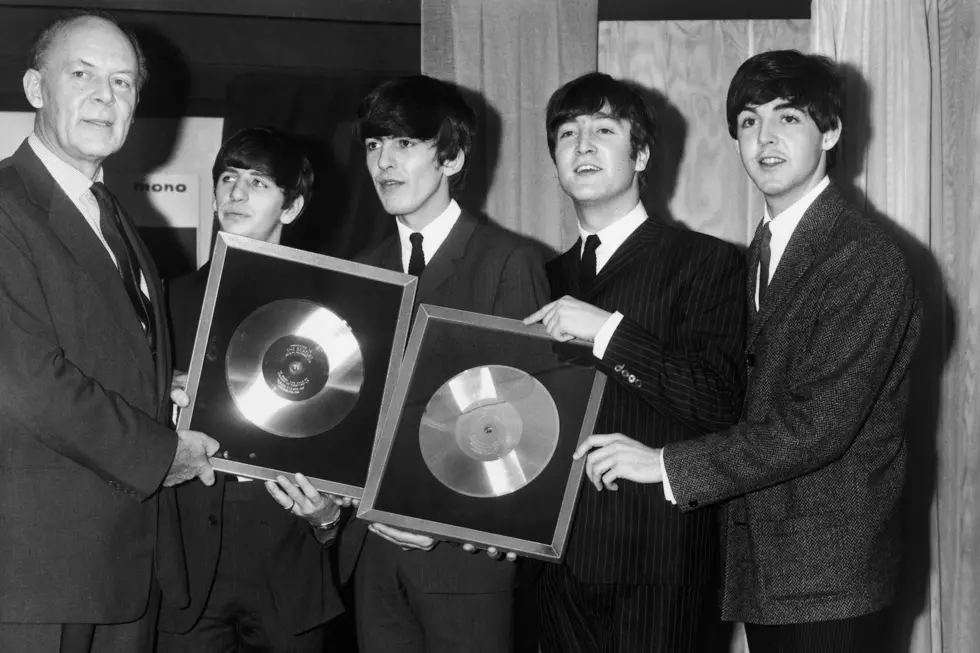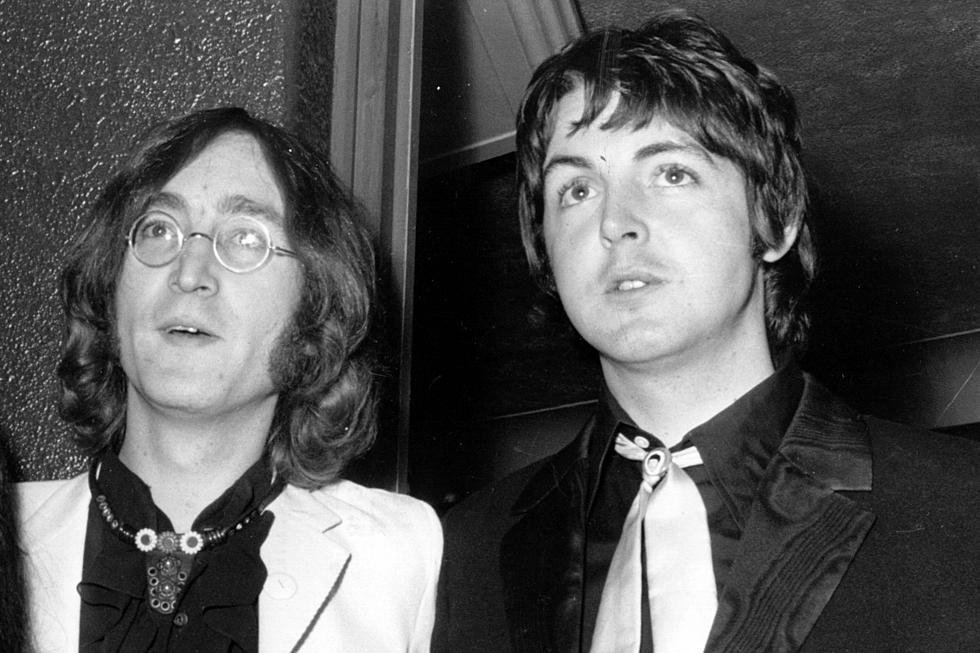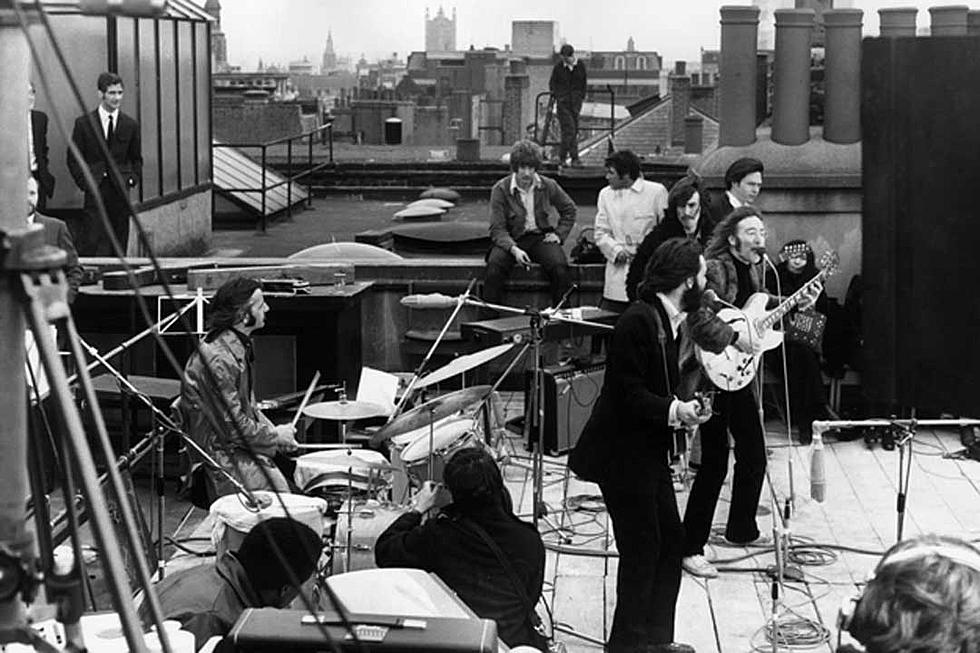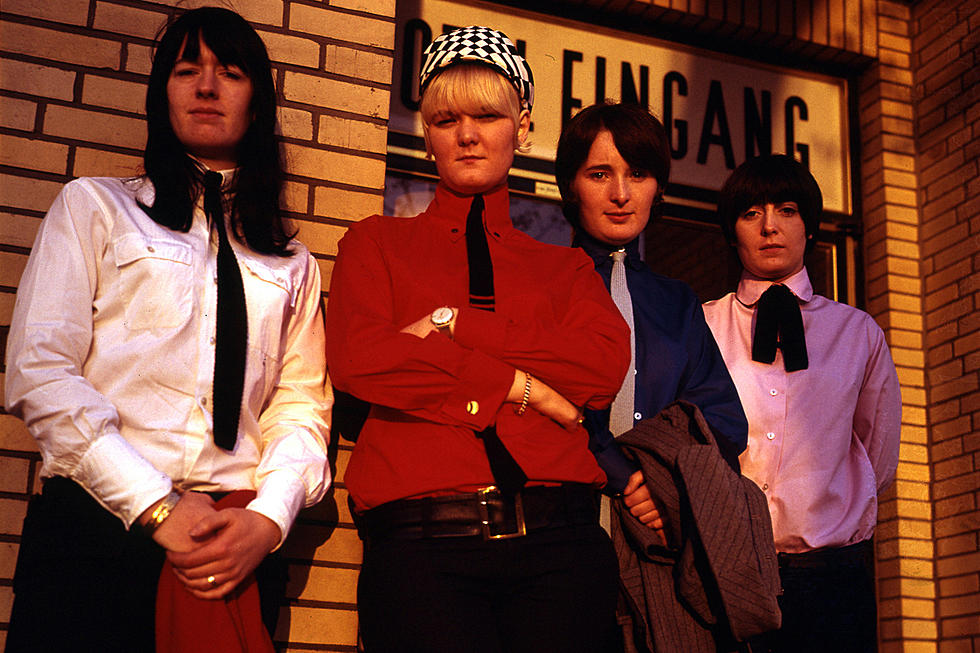
How the Beatles Formed Northern Songs Publishing Company
By early 1963, the value of the songs written by John Lennon and Paul McCartney was obvious to Beatles manager Brian Epstein.
Artists were lining up to record their new compositions. Following the release of their debut single "Love Me Do," producer George Martin recommended Dick James Music to Epstein as a publisher that could do a good job maximizing the value of the Beatles' music. James' idea: a new company owned by James, McCartney, Lennon and Epstein. On Feb. 22, 1963, Lennon and McCartney signed contracts that created what they thought was their own music publishing company: Northern Songs.
"We just signed this thing, not really knowing what it was at all about [and] that we were signing our rights away for our songs," McCartney recalled in Many Years From Now. "John and I didn't know you could own songs. We thought they just existed in the air. ... And therefore, with great glee, publishers saw us coming. We said to them, 'Can we have our own company?' They said, 'Yeah.' We said, 'Our own?' They said, 'Yeah, you can. You're great. This is what we're going to do now.'"
Prior to the '60s, music publishers were known as "song pluggers." Their job was to persuade singers to record tunes written by songwriters they represented. The business changed as artists like Chuck Berry and Buddy Holly both wrote and recorded their own music. Music publishers increasingly licensed cover versions of songs and placed music in films, TV shows and commercials.
An Oxford University Press study outlined the deal offered by James: Lennon and McCartney would each get a 20 percent share of Northern Songs; Dick James Music would get 51 percent; Epstein's NEMS Enterprises was left with the remaining 9 percent. James took a 10 percent administrative fee off the top, further reducing the Beatles' share. The Beatles only later realized how little control they now had over their songs.
"We were desperate to get a deal," McCartney recalled in Anthology. "Brian did do some lousy deals and he put us into long-term slave contracts, which I am still dealing with."
George Harrison and Ringo Starr also used Dick James to license their music. Harrison recalled, "When I first started writing songs, it was presented to me like this: 'Do you want your song published?' And as John's and Paul's songs were being published by Dick James, I said, 'Yeah, okay, I'll have my songs published.' Nobody actually says, 'And when you sign this bit of paper to have your song published, I am going to steal the copyright of your song from you.' So I signed this contract, thinking, 'Great, somebody's going to publish my song,' and then years later I'm saying, 'What do you mean I don't own it?'"
As Beatlemania swept the world, money poured in from concerts, record sales and merchandise. The Beatles saw little of it as the U.K. tax rate at the time was more than 90 percent. To remedy that, the Beatles agreed in 1965 to make Northern Songs a public company, listed on the London Stock Exchange. Lennon and McCartney's shares in the new company were 15 percent each; Harrison and Starr shared 1.6 percent.
Listen to the Beatles Perform 'Love Me Do'
"For 'Yesterday,' which I wrote totally on my own, without John's or anyone's help, I am on 15 percent," said McCartney. "To this day, I am only on 15 percent because of the deals Brian made, and that is really unjust, particularly as it has been such a smash."
What followed were decades of acrimony and lawsuits over Northern Songs. During the 1967 Sgt. Pepper sessions, Harrison wrote "Only a Northern Song" to declare his displeasure with the company. The song was later released on the Yellow Submarine soundtrack. Martin told Rock Cellar Magazine that the discordant tune was "the song I hated most of all."
"'Only A Northern Song' was a joke relating to Liverpool," Harrison said. "In addition, the song was copyrighted Northern Songs Ltd., which I don't own, so, 'It doesn't really matter what chords I play … as it's only a Northern Song.'"
By 1969, relations between the Beatles and James had deteriorated. In a series of deals with James, and later with the Beatles, television executive Lew Grade's ATV Music purchased Northern Songs.
Though he lost control of the Beatles' catalog, McCartney was busy acquiring publishing rights to the music of artists like Holly and Carl Perkins. During their 1982 "Say Say Say" sessions, Michael Jackson asked McCartney for career advice. McCartney told him, "Think about getting into music publishing."
"I thought he was joking," McCartney told Howard Stern. "He said, 'I'm gonna get yours.'"
But it was no joke. In 1985, Jackson bought ATV's vast song catalog for $47.5 million, which included almost 250 Lennon-McCartney tunes.
In 1995, Jackson sold half of the ATV catalog to Sony for $100 million, forming Sony/ATV Music Publishing. Northern Songs was dissolved. Jackson died suddenly in 2009, and in 2016 his estate sold the remaining half of the company to Sony for $750 million.
For relief, McCartney looked to a 1976 U.S. law that recognizes that many songwriters signed unfavorable deals with music publishers in the past. For songs written before 1978, the law allows writers the opportunity to regain ownership after 56 years. Publishing rights for songs written in or after 1978 can be reclaimed after 35 years. As the Lennon-McCartney catalog begins to reach the 56-year mark in 2018, McCartney sued Sony/ATV in January 2017.
In June 2017, McCartney and Sony/ATV reached a confidential settlement that could restore McCartney's copyrights, starting with “Love Me Do,” on Oct. 5, 2018.
Beatles Albums Ranked
See the Beatles in Rock’s Craziest Conspiracy Theories
More From Cool 98.7 FM










